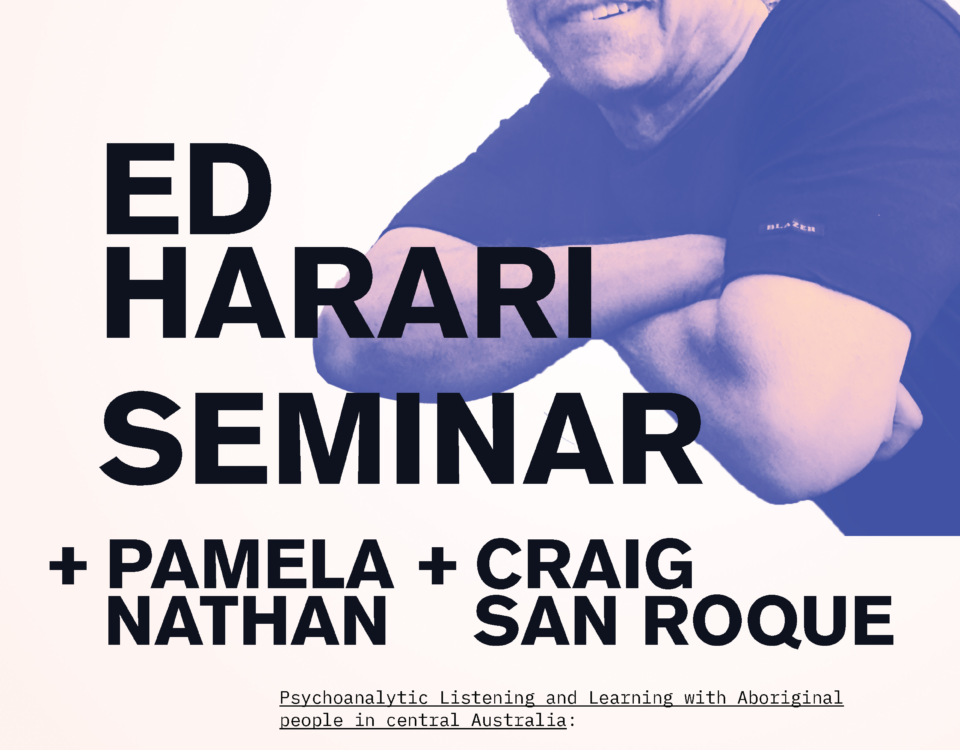A Town Called Alice
October 29, 2014First Contact – ‘reality’ tv with a social conscience
November 21, 2014By Pamela Nathan
Richard reminds us that Yalti and nine other members of the Pintupi grouping came in from the desert as late as 1984. Think about it- twenty-four years ago only!! What an enormous adjustment! What incredible reliance and adaption to be able to straddle two worlds in twenty-four years!
As Richard says:” Watching these two women cooking kangaroo tails in a pit-fire as they share stories of the old ways of the desert one is reminded that, in the timeline of their culture, the wrenching changes forced upon them have occurred in the blink of an eye”. Yukultji, who was an adolescent at the time of first-contact, Richard says, “seems puzzled by the suggestion that the old ways have been lost at all. In their adaptable way, the Pintupi have retained many of their old beliefs and modified old practices for a new world”.
I knew Charlie McMahon and David Scrimgeour from the 1980’s when Central Australian Aboriginal Congress (CAAC) helped the Pintupi people move back to Kintore and get some essential services. As David said of the first-contact people: “They were the most healthy people I have ever seen… They were literally glowing with health – not an ounce of superfluous fat. They were extremely fit.” They came in because there were no other families out in the desert. They had, however, survived in the desert until the 1980’s and remained healthy.
Settle Down Country, Pmere Arlaltyewele (1983) is the title of a book and video I wrote with Japanangka for the CAAC in 1983 (both are available to view on the CASSE website: Settle Down Country Book, Settle Down Country DVD). This project told the story of the movement of Aboriginal people to reoccupy their ancestral lands after they had been prevailed upon to leave under the policy of assimilation and the interests of the Woomera Rocket Range, which included the building of the Gunbarrell Highway and the “trucking in” of the Pintupi people to Papunya. We called this historical period the “War of the Central Desert”. Settle Down Country demonstrated the terrible cultural collision and the death toll for the Pintupi when they first arrived in Papunya. As Settle Down Country established, people were bought in for reasons other than starvation and drought and many, as Charlie said, died within the first few weeks of settlement life from western disease. In the early 1980’s people were empowered returning to country and reclaiming their homelands. The Settle Down Country DVD shows kwemenje Zimran and the traditional owners in control and jippa jippa for country. Today there is a dialysis unit and many suffer from diabetes.
Richard reports that Scrimgeour, who still works in indigenous health, laments the failures of government policy over the past 30 years. “There should have been more emphasis on making sure the food available in these community stores was healthy,” he says. “But deeper than that, there’s a sort of loss of spirit that has occurred in Aboriginal communities. Thirty years ago that community was extremely strong – they had gone to reoccupy their land, and the fact that they were so determined to protect this group indicated how much control they felt they had over their own lives. I don’t think they have that feeling of control today, and that’s an extremely important determinant of health. That’s a big area where we have failed.” Like most desert communities, Kiwirrkurra and Kintore were gutted by the withdrawal of the CDEP employment scheme during the Howard government “intervention”, adding to the damage already inflicted by years of bad diet.
In 1982 in the Settle Down Country Prologue, the chairman of Kintore, kwementjeye Zimran, told the “dreaming story of the perentie which started west of Wiluna and came through Walanguru (Kintore) which means sacred place which belongs to Pintupi people”. He said: “the Pintupi people will move further west, north and south because that is where they have their own country and where their stories are which are very important to Aboriginal people”. He called for government support to resettle on country and we helped secure some limited funds from the Department of Aboriginal Affairs at the time. Much more support was needed then and is still needed today. CASSE is beginning a program in collaboration with others, like RFDS, working alongside the men in the communities out west to keep their stories alive and pass them down the generations, along with the skills and methods of making traditional tools. These tools kept them alive out in the desert and today may be essential life skills. It is called the Tjilirra project. There are no men’s sheds, no other programs for men and,curiously, if they make traditional tools and transport them they may be confiscated by police as weapons.
Is it now Nomad’s Land or No Man’s Land?
As you ponder this question, dwell also on the remarkable story of the cosmopolitan nomad, equally comfortable eating woollybutt damper in the desert or eel sushi in New York. I wonder how many whitefellahs would be happy padding barefoot through the desert, picking and grinding seeds to make sweet damper?





